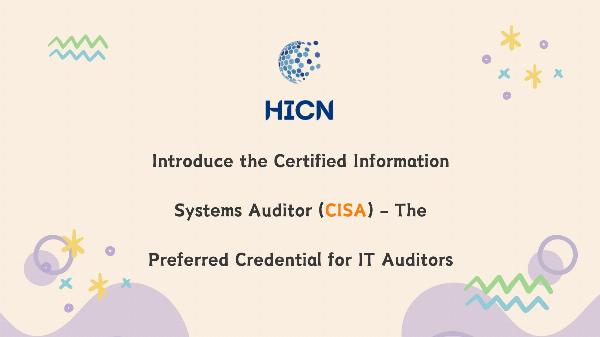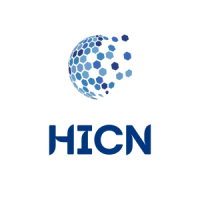Introduce the Certified Information Systems Auditor (CISA) - The Preferred Credential for IT Auditors

Strong 8k brings an ultra-HD IPTV experience to your living room and your pocket.
Among all the IT certifications, the Certified Information Systems Auditor (CISA) holds a special status. We know that ISACA empowers IT professionals to advance digital trust, allowing businesses to grow and thrive, and its credentials rank among the top 10 highest-paying in the IT industry. The CISA is one of the ISACA credential, being acknowledged as the leading credential for IT auditors.
Choose to Earn the Certified Information Systems Auditor (CISA) to Prove Yourself
The Certified Information Systems Auditor (CISA) is globally recognized as the benchmark for excellence in auditing, monitoring, and evaluating IT and business systems, while also embracing the importance of new technologies. Obtaining a CISA certification demonstrates your expertise and confirms your capability to use a risk-based approach in audit tasks. By incorporating advancements such as AI and blockchain, CISA ensures that IT audit professionals remain updated with the latest technology trends.
CISA Exam Details
1. Exam Structure:
The CISA exam consists of 150 multiple-choice questions. These questions are distributed across five domains:
- Information System Auditing Process (18%): Affirms your credibility to offer conclusions on the state of an organization’s IS/IT security, risk and control solutions.
- Governance and Management of IT (18%): Confirms to stakeholders your abilities to identify critical issues and recommend enterprise-specific practices to support and safeguard the governance of information and related technologies
- Information Systems Acquisition, Development, and Implementation (12%): Deals with the processes of acquiring, developing, and implementing IT systems, ensuring they meet business needs.
- Information Systems Operations and Business Resilience (26%): Involves assessing system operations, maintenance practices, and business continuity planning.
- Protection of Information Assets (26%): Touches virtually every information systems role, and understanding its principles, best practices and pitfalls is a major focus.
2. Exam Duration:
The exam lasts for four hours.
3. Scoring:
The CISA exam is scored on a scale of 200-800 points. A minimum score of 450 is required to pass.
4. Eligibility:
- To apply for the CISA certification, candidates must have at least five years of professional work experience in information systems auditing, control, or security.
- Waivers for up to three years of experience may be granted based on certain educational qualifications or other certifications.
5. Exam Delivery:
The CISA exam is administered through computer-based testing at designated exam centers globally.
CISA Exam Benefits
1. Global Recognition: The CISA certification is recognized internationally as the gold standard for IT audit, control, and security professionals.
2. Career Advancement: Holding a CISA certification can significantly enhance your career prospects, opening doors to senior roles in IT auditing, risk management, and governance.
3. Higher Earning Potential: CISA-certified professionals typically earn higher salaries than their non-certified counterparts, making it one of the top-paying credentials in IT.
4. Enhanced Knowledge and Skills: The CISA certification process ensures that candidates possess in-depth knowledge and skills in IT audit, governance, and security practices.
5. Networking Opportunities: Being part of the ISACA community allows CISA holders to connect with a global network of professionals in the field.
CISA Exam Differences Compared to Other IT Certifications:
1.CISA vs. CISM
CISA: More focused on auditing, monitoring, and assessing information systems.
CISM: Centers around managing and governing an organization’s information security program.
2.CISA vs. CISSP
CISA: Targets IT auditing and control with a focus on ensuring that systems are secure and compliant.
CISSP: A broader certification that covers a wide range of information security topics, including cryptography, security architecture, and software development security.
Generally, there are three items to show the differences compared to the CISM or CISSP:
- Focus on Auditing: Unlike certifications such as CISSP or CISM, which are broader in scope covering general cybersecurity or information security management, CISA focuses specifically on IT auditing and control.
- Governance and Compliance: CISA places a strong emphasis on governance, risk management, and compliance, areas that may be only partially covered in other certifications.
- Experience Requirement: The professional experience requirement for CISA is specific to IT auditing, making it more specialized than many other IT certifications.
Note: IndiBlogHub features both user-submitted and editorial content. We do not verify third-party contributions. Read our Disclaimer and Privacy Policyfor details.







